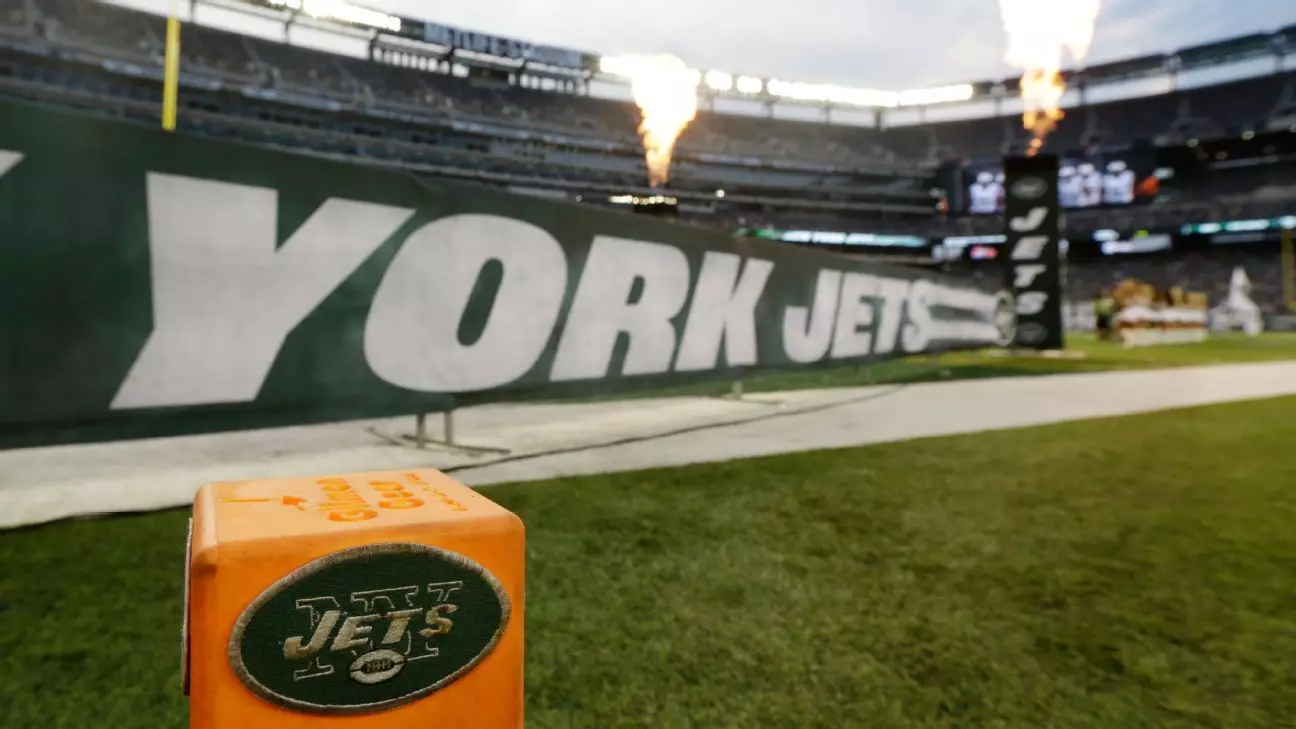In recent years, the New York Jets have gained notoriety for their tumultuous coaching changes and inconsistency on offense. As the franchise gears up for the 2025 season, the hiring of Tanner Engstrand as their new offensive coordinator marks yet another fork in the road for a struggling team. Engstrand, who previously served under Dan Campbell with the Detroit Lions, brings a fresh perspective to a position that has seen ten different playcallers in just 15 years. However, the challenges he faces are immense, especially with the looming uncertainty surrounding future Hall of Famer Aaron Rodgers.
At 42 years old, Tanner Engstrand arrives in Florham Park armed with a reputable coaching background. His journey began under the tutelage of Jim Harbaugh, first at the University of San Diego and later at the University of Michigan. Engstrand’s rise through the ranks includes significant contributions as a passing game coordinator, where he had a hand in orchestrating the Lions’ electrifying offense that led the league with 564 points in 2024. This achievement highlights his potential as an innovator in offensive strategy, even if his NFL playcalling experience is limited.
The Jets’ decision to hire Engstrand reflects an increasing trend wherein teams lean on coaching candidates with prior collaborative experiences, especially those designed to foster strong relationships—like the one he possesses with Aaron Glenn. This partnership projects a sense of continuity and shared vision but arrives with the cautionary tale of previous Jets attempts at establishing a cohesive offensive identity. The playbook Engstrand brings from Detroit may provide an optimistic glimpse into a reimagined offensive structure, but the real question remains: can he adapt it effectively to function within the Jets’ unique environment?
As Tanner Engstrand settles into his role, he faces an immediate challenge regarding the quarterback position—a pivotal concern as the Jets’ ambitions ride heavily on the shoulders of Aaron Rodgers. The seasoned quarterback, at 41 years old, has not made a definitive choice regarding his 21st season in the NFL. There’s speculation not only about his return but also about his fit within a new offensive scheme shaped by a fresh playcaller. Glenn’s remarks about evaluating Rodgers like every other player add layers of complexity, potentially pitting the team’s future against the uncertain legacy of the legendary signal-caller.
This quandary highlights the broader season-long issue faced by the Jets: a consistent lack of stability at quarterback. The last couple of years have been a revolving door of uninspiring options, culminating in the departure of Nathaniel Hackett mid-season. The Jets are left with an aging backup in Tyrod Taylor and a raw prospect in Jordan Travis, who is still recovering from a college injury. Engstrand must navigate this delicate landscape, as his success hinges on finding synergy with a quarterback who may not return to the field or might not be conducive to implementing his vision.
Building Around Talented Players
Despite these uncertainties, Engstrand inherits a promising roster featuring dynamic playmakers such as wide receivers Garrett Wilson and potentially Davante Adams. However, the specter of salary cap dilemmas may force the Jets to release Adams, further complicating Engstrand’s task of building a cohesive offense. Moreover, the presence of versatile running back Breece Hall and a largely stable offensive line signals that he can craft a plan tailored to maximizing the existing talent.
Engstrand’s first task will be establishing chemistry with the current players, particularly if Adams remains on the roster. Strategic game planning that caters to each player’s strengths will be a crucial initial step for the new offensive coordinator. By weaving together an approach that integrates the expansive talents at his disposal, Engstrand can kindle hope among fans who have witnessed far too many disappointing seasons.
As the Jets approach the 2025 season, anticipation and skepticism loom large. Engstrand’s hiring has the potential to redefine the Jets’ offensive philosophy, but it also carries the weight of expectation amid a backdrop of organizational instability. The uncertain fate of Aaron Rodgers only amplifies the stakes. For Engstrand and the Jets, carving a successful path forward will rely heavily on nurturing relationships, fostering player performance, and ultimately uniting the team under a shared offensive vision—if they can secure the right pieces to complete the puzzle.
A successful tenure for Engstrand may not just be about immediate outcomes but rather about establishing a long-term winning culture in a franchise desperately in need of revitalization. Only time will reveal if the Jets and their new offensive architect can emerge from the shadows of past failings.


Leave a Reply